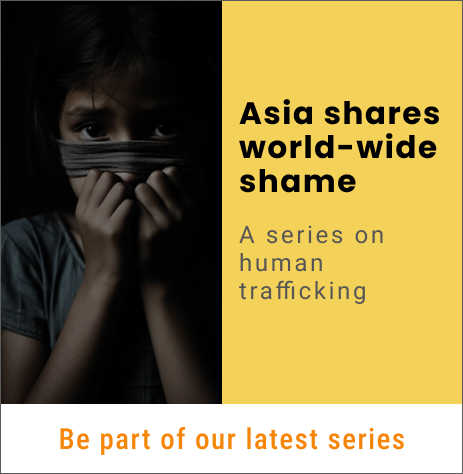Global rights group Civicus Monitor rated civic space in Pakistan as “repressed” due to ongoing crackdowns on the political opposition, rights defenders and press, and called on the international community to hold the authorities accountable.
The country has continued systematic assaults on civic space including regression of the political opposition, intimidation and criminalization of rights activists and journalists while failing to hold the perpetrators to account, the group said in a statement on March 5.
Civicus listed Pakistan among Asian nations where civic freedom is repressed, dissent silenced, ethnic activists from Baloch and Pashtun communities harassed and perpetrators of enforced disappearances enjoy impunity.

The country’s powerful and influential military establishment backed the Pakistan Muslim League – Nawaz (PML-N) party ahead of the Feb. 8 national election, but politicians allied with jailed former prime minister Imran Khan’s PTI party won the most seats and no party achieved a simple majority.
However, this prompted archrivals PML-N and the Pakistan People’s Party (PPP) to form a coalition government, which would lack credibility as Khan’s party said, adding that it was deprived of a far greater mandate by widespread rigging and the manipulation of results.
The international community, including the European Union, United States and the United Kingdom, have expressed concerns about the fairness of the elections including internet and mobile shutdowns and suppression of protests. They have called for an investigation into claims of election irregularities, Civicus said.
Many supporters of opposition parties, mostly from the PTI, have been detained and jailed under vague laws banning rioting and disturbing public order.
Some PTI leaders were allegedly detained and resurfaced a few days after their disappearance to announce they were leaving Khan’s party.
A spokesperson for the UN High Commissioner for Human Rights said in a Feb. 6 statement that they were “disturbed by the pattern of harassment, arrests and prolonged detentions of PTI leaders and their supporters which has continued during the election period.”
Ahead of the election, the Election Commission barred the PTI from using its cricket bat electoral symbol, forcing its leaders to contest the elections as independent candidates.
A government crackdown also barred the national media from reporting Khan’s speeches and rallies on TV while “near-blanket” censorship was imposed on TV news channels and web outlets on coverage of the PTI party.
London-based rights watchdog Amnesty International slammed the decision to suspend the internet and mobile shutdowns on the election by calling it “reckless to impede access to information as people head out to polling stations.”
In recent months, rights defenders and journalists have been under pressure for their work, Civicus said.
On Nov. 27 last year, police raided the home of human rights defender Hooran Baloch in Quetta, Balochistan.
Baloch is the research coordinator of the Voice for Baloch Missing Persons (VBMP). Founded in 2009, the organization supports victims and relatives of enforced disappearances in Balochistan and documents violations.
Political activist, religious liberty and human rights advocate Hidayatullah Lohar from Sindh province was killed by gunmen on Feb. 16. He had reappeared two years after being a victim of forced disappearance.
Civicus said the Baloch community has long suffered due to historic and ongoing violations by the authorities, including enforced and involuntary disappearances, extrajudicial killings, arbitrary detention and torture.
Similarly, Pashtun activists have been targeted and harassed by the authorities for waging movement against systematic discrimination and rights violation of ethnic Pashtun people, the group added.
Credit: Source link




